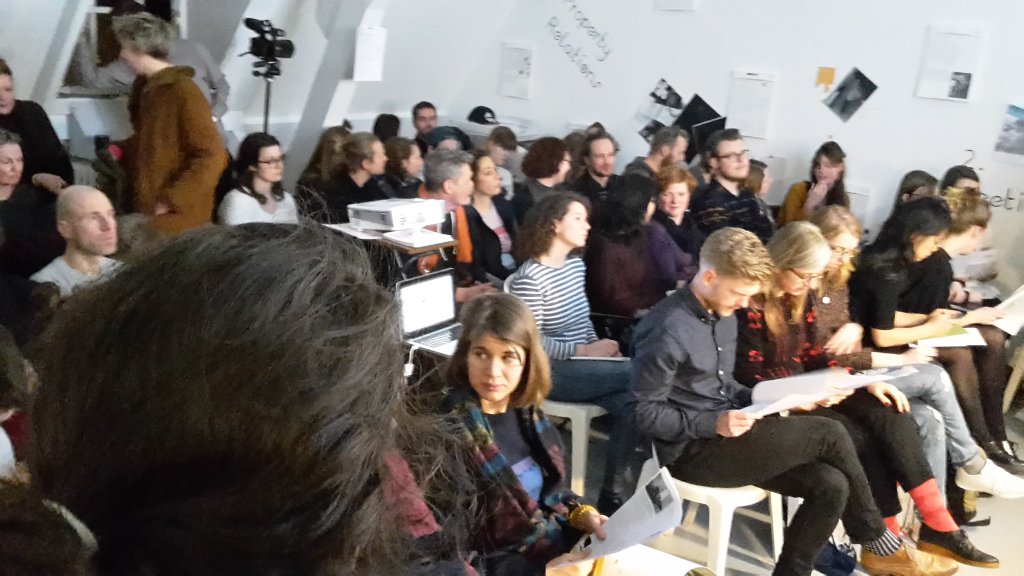Making art is too much fun and too unnecessary. People really like making art, and really want to show it off. So much so, that they are the only ones doing their contribution to an art event for free. While all other contributors are simply paid. So the art world, including the subsidised one, is one of the places in the Netherlands where slavery is still common. It is time to do something about it. A hallmark for slavery-free galleries and museums would be a nice start.
On Tuesday, February 9, the Visual Arts Platform A debate at the Utrecht art centre Casco. It was packed to capacity. The small hall with a capacity of 50 people now accommodated at least 100 artists, all of whom came to hear what can be done about the current situation. And that situation is simple: museums in the Netherlands ask artists to create and exhibit work, without providing any remuneration in return. All this with the excuse that 'exposure' is good, and if refused, there are as many as 10 others ready to exhibit their work. Free.
Precarious
The speakers on the evening, in addition to someone from the Van Abbe Museum, the director of presentation institution Hotel Maria Kapel and some artists, did their best to show their best side: with them, art was paid for, however modestly. Yet on that side of the room there also appeared to be an understanding of the sometimes precarious situation in which many art institutions find themselves. Especially after the draconian cuts under the watchful eye of Halbe Zijlstra, during the Rutte 1 Cabinet. None of those present were hopeful that these cuts will come to an end.
So the market is in a race to the bottom. It does not only apply to visual arts institutions, by the way: festivals also sometimes pay nothing or very little. Sometimes a festival director complains that too few bands come to perform for a crate of beer. In doing so, the cultural sector itself perpetuates the image that a creator of art, and the work she makes, is completely interchangeable, and therefore worth little. Artists go along with that image and offer their work for free, for fear of being left out forever.
With impunity
This bizarre situation has arisen under the watchful eye of the government, whose subsidy policy makes no demands on how that money is spent on artists. So a museum running on government subsidy can ask people for services unpaid with impunity, while what little money there is is spent on the salary of a marketer, a director, an accountant and the handyman.
Attending representatives of the Mondriaan Fund, which distributes much of the visual arts money in the Netherlands, acknowledged that the problem was big, and said they were happy with a directive. But how happy should we be with a directive? Many institutions are already unable to keep their heads above water and will fall over as soon as they have to start paying reasonable fees to artists. One of them calculated that it costs the Treasury €246 million to give every currently active artist a modal income.
[Tweet "If the arts sector in the Netherlands is largely floating on modern slavery: tell it."]
Collapsing presentation institutions will cause little stir in today's rather art-hostile political climate. That this is because they have to pay artists according to a directive imposed from above will also be of little concern to the public. If the art sector is then at the mercy of the free market: so be it. But such a thing should be transparent and open. If the art sector in the Netherlands is indeed largely floating on modern slavery: tell it.
As an interest group, the Visual Arts Platform can only do one thing. With a hallmark. A designer can finish that in a day. The PR need not cost that much. If the hallmark is distributed via a website banner, door sticker and logo on the stationery, the effect will soon be noticeable. After all, what museum doesn't want to show off the 'Slave-Free Art' hallmark?

